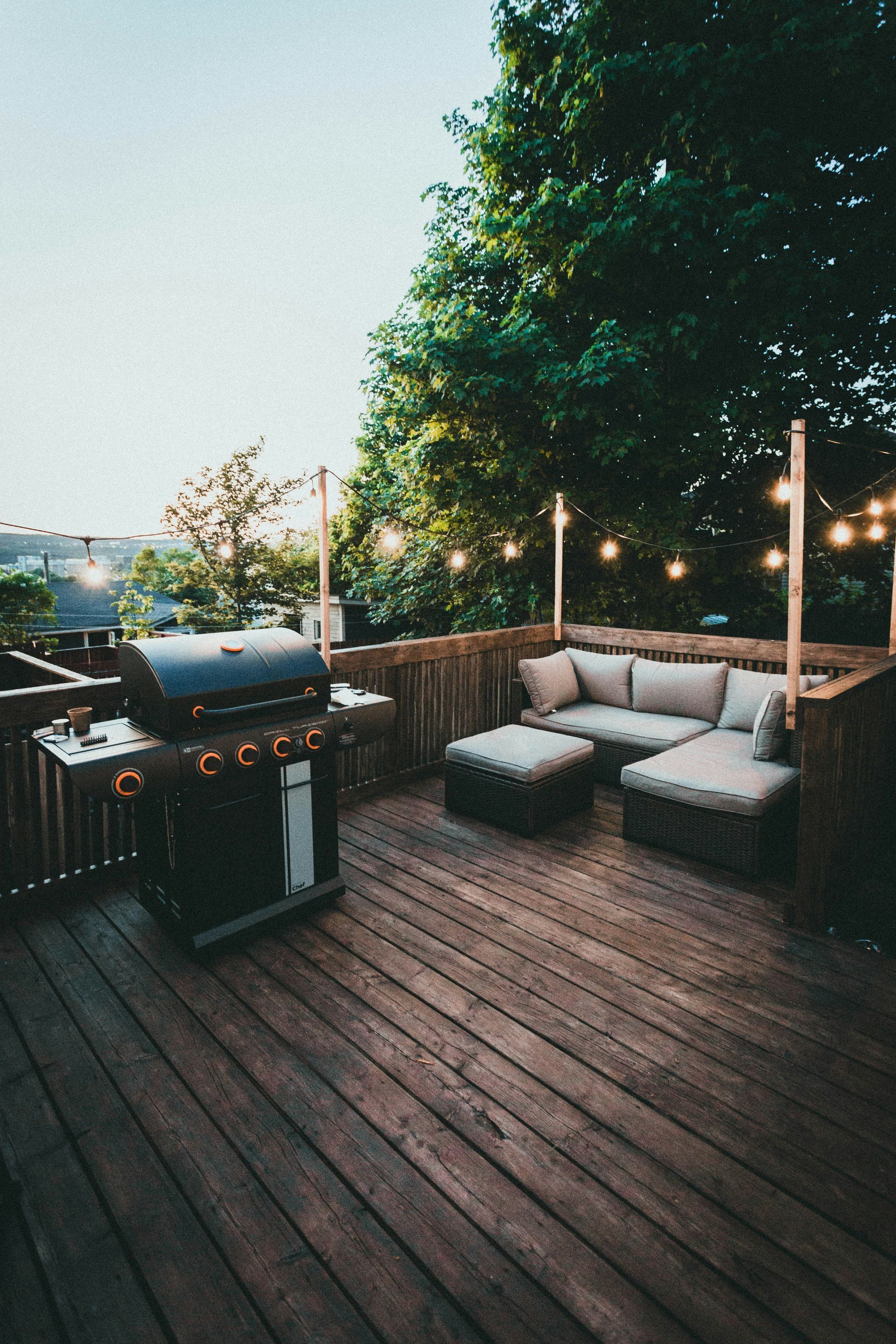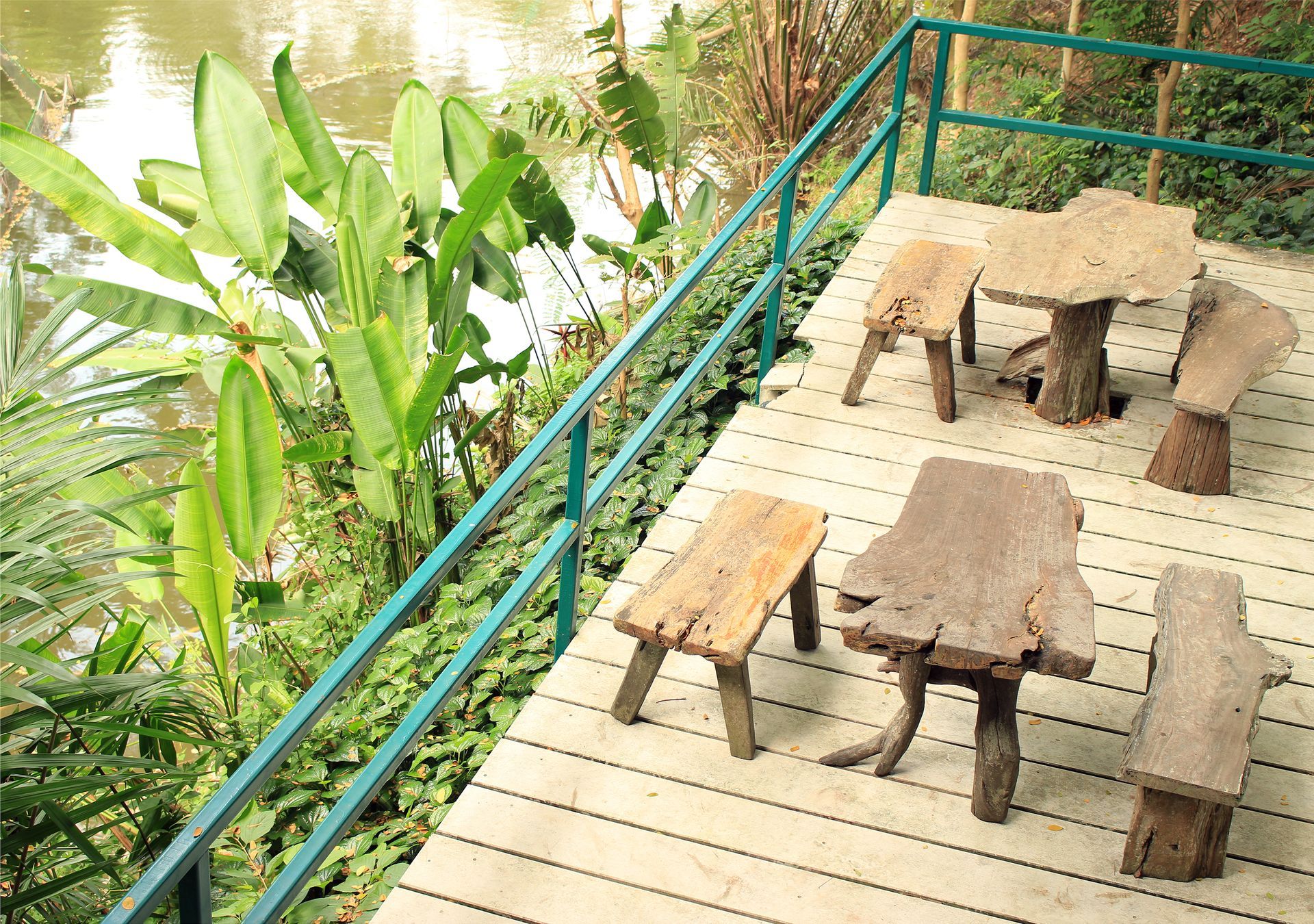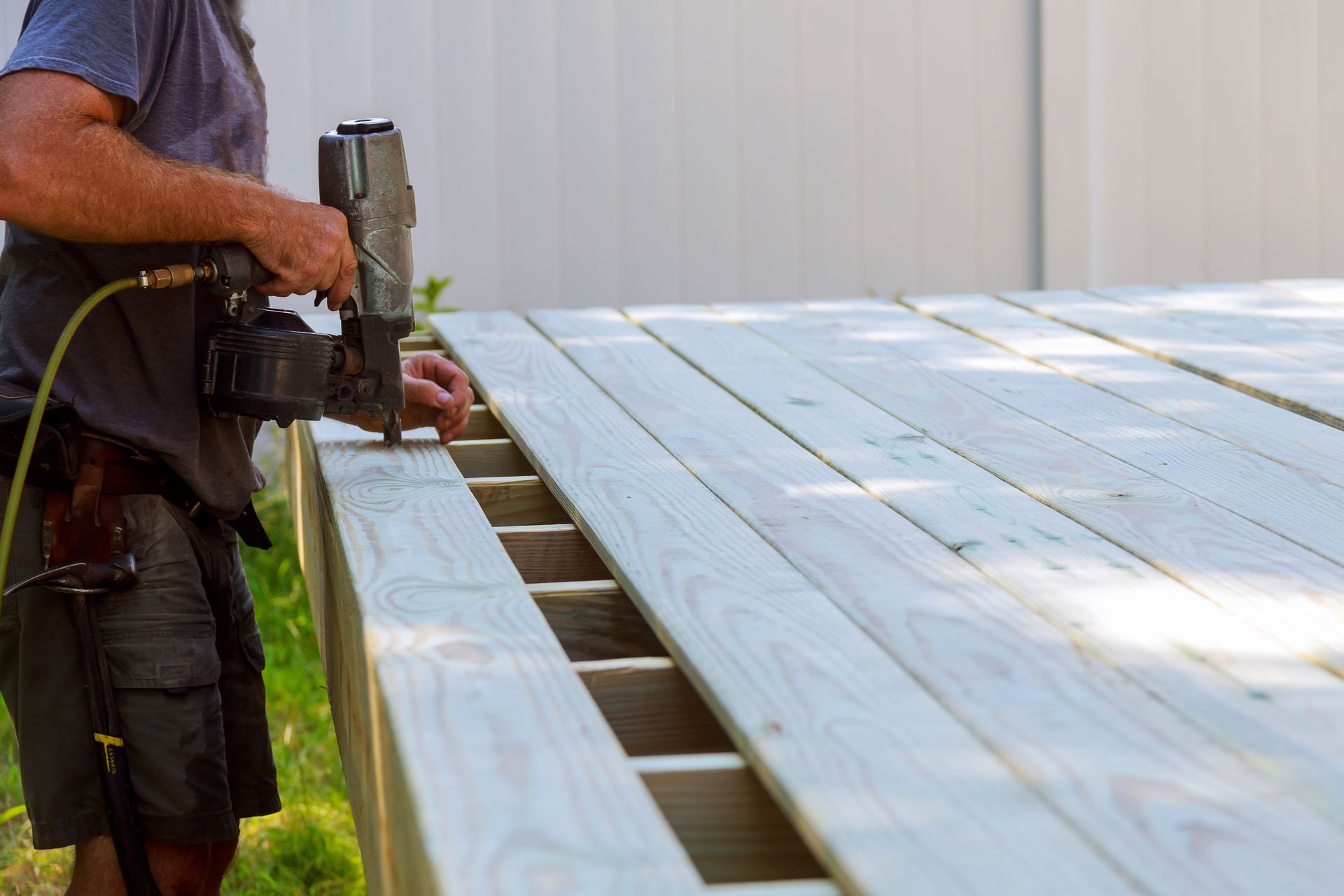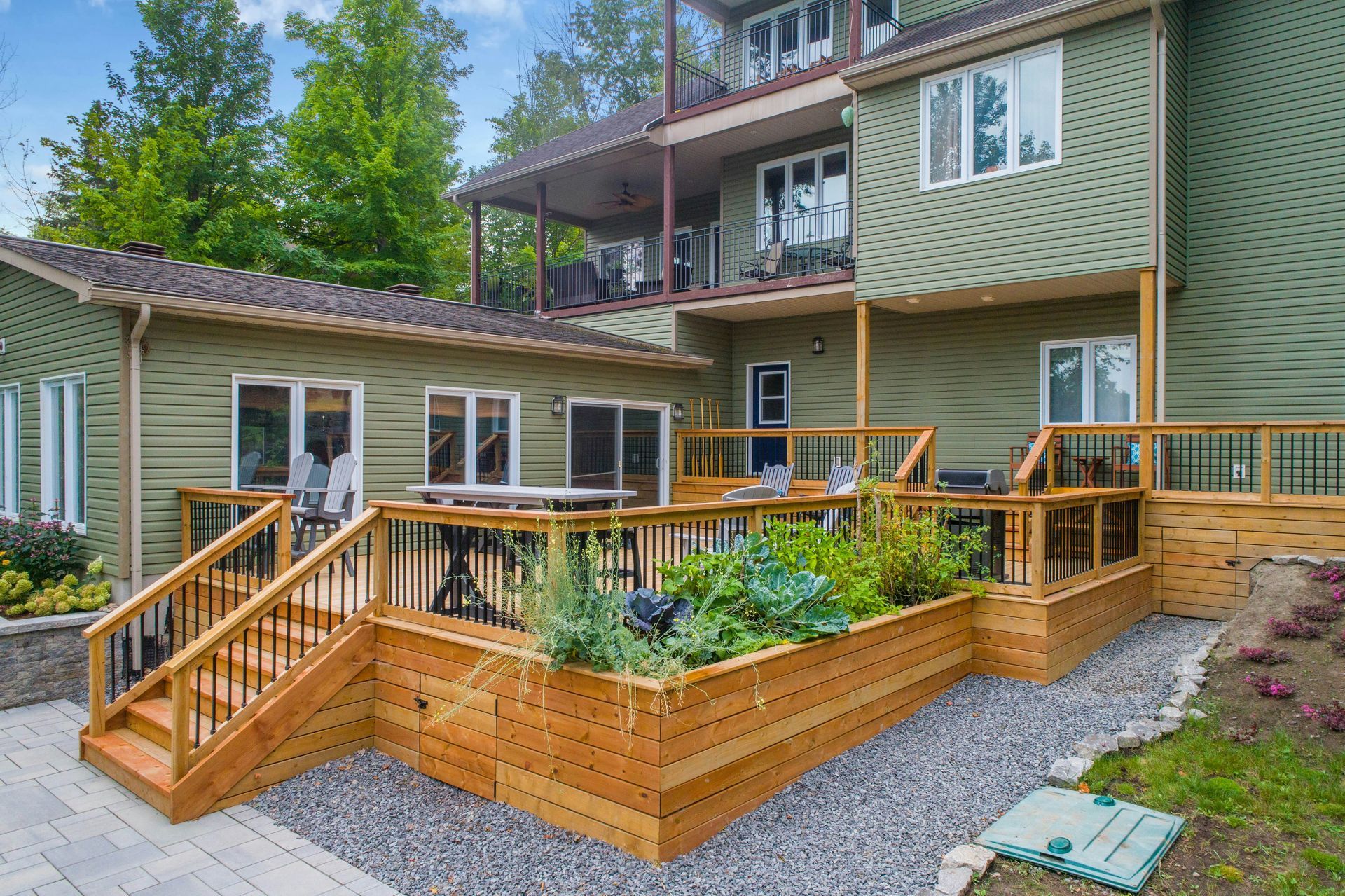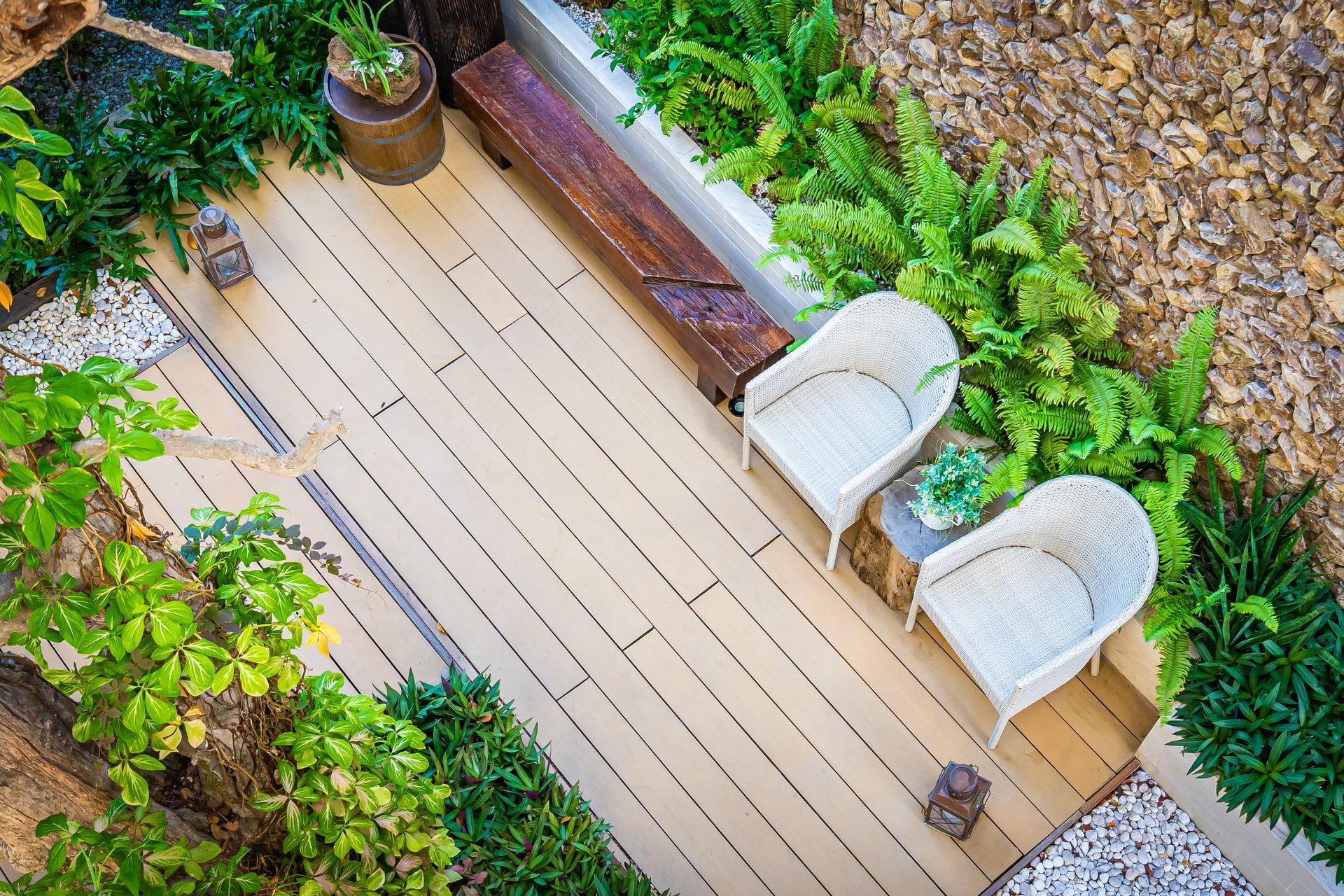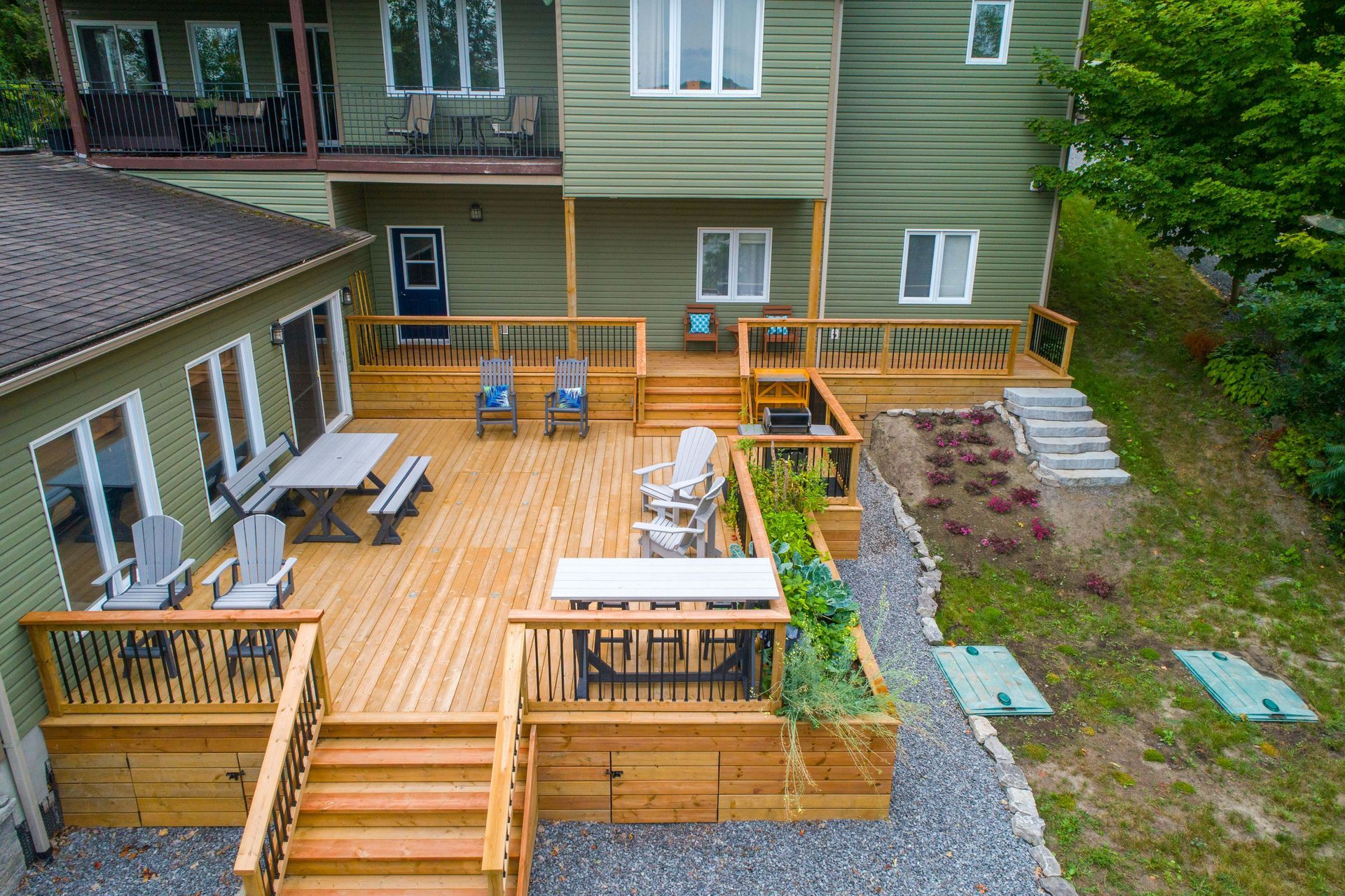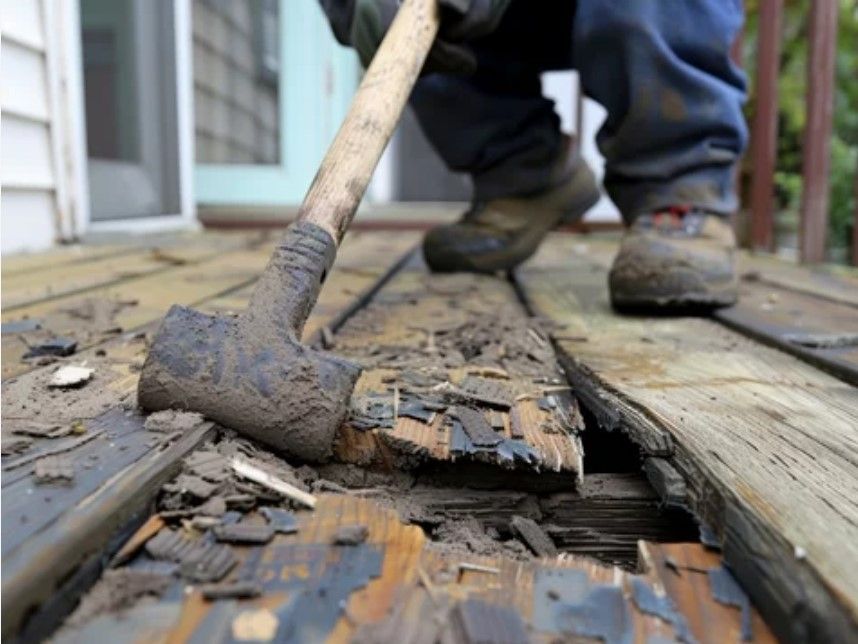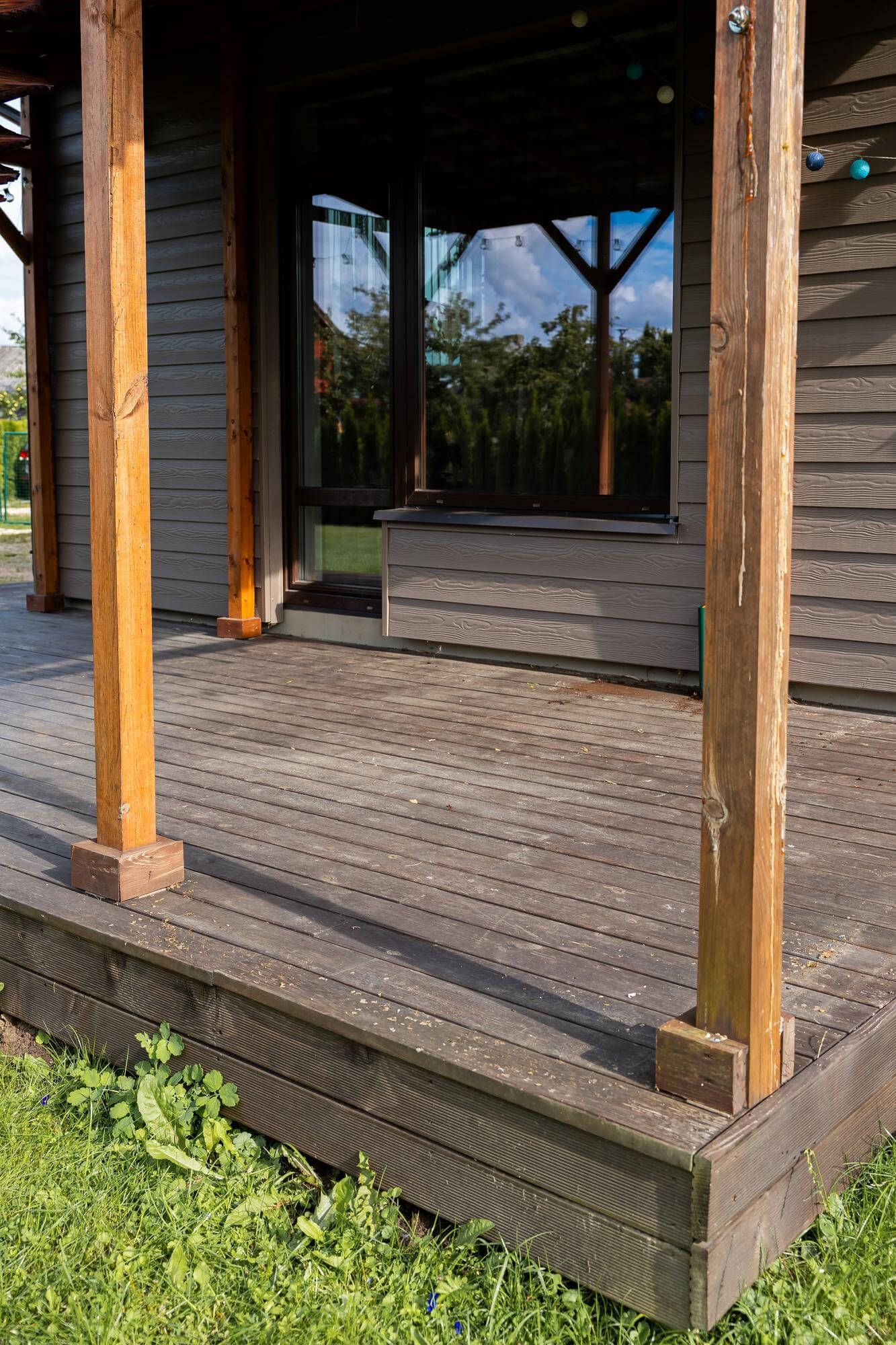Blog
Deck Maintenance Tips: How to Avoid Rotting Deck Boards
A well-maintained deck enhances your outdoor living space and boosts your home's value. However, without proper care, your deck can fall victim to rotting deck boards, leading to costly repairs or even complete replacement. If you're looking for "wood deck repair near me," you may already be dealing with issues like moisture damage, warping, or decay. In this guide, we'll walk you through essential deck maintenance tips to help you avoid rot and keep your deck in top shape for years to come.
1. Keep Your Deck Clean and Dry
One of the primary causes of rotting deck boards is moisture accumulation. When water sits on wood surfaces for prolonged periods, it seeps into the fibers and accelerates decay. To prevent this:
- Sweep your deck regularly to remove debris like leaves, dirt, and twigs that can trap moisture.
- Wash your deck at least once a year using a mild detergent and a soft-bristle brush or pressure washer.
- Make sure to clean between deck boards to allow proper drainage.
- Direct downspouts away from your deck to minimize exposure to excess water.
By maintaining a clean and dry surface, you can significantly reduce the likelihood of wood rot and costly deck repairs in your area.
2. Apply a Protective Sealant or Stain
Unprotected wood is vulnerable to moisture absorption, which can lead to rotting deck boards over time. Applying a high-quality sealant or stain creates a barrier that repels water and prolongs the lifespan of your deck.
- Choose a waterproof sealant or stain designed for outdoor wood.
- Apply the product every two to three years, or as recommended by the manufacturer.
- Before sealing, ensure the deck is completely dry and free from dirt or mildew.
- Use a brush or roller to apply an even coat, paying extra attention to cracks and exposed end grains.
Sealing your deck is an investment that saves you from higher deck restoration costs down the road.
3. Inspect and Repair Damaged Boards Promptly
Regular inspections are crucial in catching potential issues before they worsen. At least once a year, conduct a thorough check for signs of:
- Soft, spongy wood that indicates decay
- Cracks or splintering boards
- Loose or protruding nails and screws
- Areas where the wood appears darkened or discolored
If you spot any problem areas, address them immediately. If you’re unsure about tackling repairs yourself, search for "wood deck repair near me" to find a professional who can help. At Hunt Home Remodeling, we specialize in deck repairs and maintenance, ensuring your deck remains safe and sturdy.
4. Ensure Proper Ventilation and Drainage
A poorly ventilated deck traps moisture, accelerating rot and mold growth. To improve airflow and drainage:
- Space deck boards adequately to allow water runoff.
- Keep vegetation like shrubs and grass trimmed away from the deck perimeter.
- Consider installing lattice skirting or vented panels to promote airflow underneath the deck.
- If your deck is prone to pooling water, adjust the slope to encourage drainage away from the structure.
Proper ventilation prevents moisture buildup, reducing the risk of rot and lowering the need for expensive deck repairs in your area.
5. Address Structural Issues Before They Worsen
Sometimes, deck problems go beyond surface-level rot and extend to the supporting structure. If you notice sagging joists, unstable railings, or deteriorating posts, professional intervention is necessary. Structural damage can make your deck unsafe for use, and neglecting repairs could lead to a costly replacement.
- Check for rusted or corroded fasteners and brackets.
- Look for shifting or wobbly railings that need reinforcement.
- Inspect the ledger board (where the deck attaches to the house) for signs of decay.
- If in doubt, contact a professional deck contractor for an assessment.
When considering the "deck restoration cost," it's always better to invest in timely repairs than to wait until a full rebuild is necessary.
Hire Hunt Home Remodeling for Expert Deck Repairs and Maintenance
If you're searching for reliable "deck repairs in my area," look no further than
Hunt Home Remodeling. Located in Bennington, NE, our experienced team specializes in deck repairs and maintenance, ensuring your outdoor space remains beautiful, safe, and durable. Whether you need minor fixes or extensive restoration, we provide high-quality craftsmanship at competitive prices.
Don’t let rotting deck boards compromise your deck’s integrity. Contact Hunt Home Remodeling today at
(402) 885-0738 to schedule an inspection or request a free estimate. We provide
custom deck builds,
deck installation, and
deck repair. Let us help you preserve and enhance your deck for years to come!
FAQs
How often should I seal my deck?
It’s recommended to seal your deck every two to three years, depending on the level of exposure to sun and moisture. A good rule of thumb is to perform a water test—if water soaks into the wood rather than beading up, it’s time to reapply a sealant.
What are the signs of rotting deck boards?
Common signs of rot include soft, spongy wood, dark spots, splintering, and a musty smell. If you notice any of these, act quickly to repair or replace the affected boards before the damage spreads.
Can I repair my deck myself, or should I hire a professional?
Minor repairs, such as replacing a few boards or tightening screws, can often be done by homeowners. However, for structural issues, extensive rot, or if you’re unsure how to proceed, it’s best to hire a professional to ensure the job is done correctly and safely.
How much does deck restoration cost?
The cost of deck restoration varies depending on the extent of damage, materials used, and labor costs. Basic repairs may cost a few hundred dollars, while extensive restorations can run into the thousands. Contact Hunt Home Remodeling for a detailed estimate tailored to your needs.
How can I prevent my deck from rotting in the future?
To prevent rot, keep your deck clean and dry, apply a protective sealant regularly, ensure proper drainage and ventilation, and inspect for damage frequently. Catching small problems now prevents big repair bills later.
